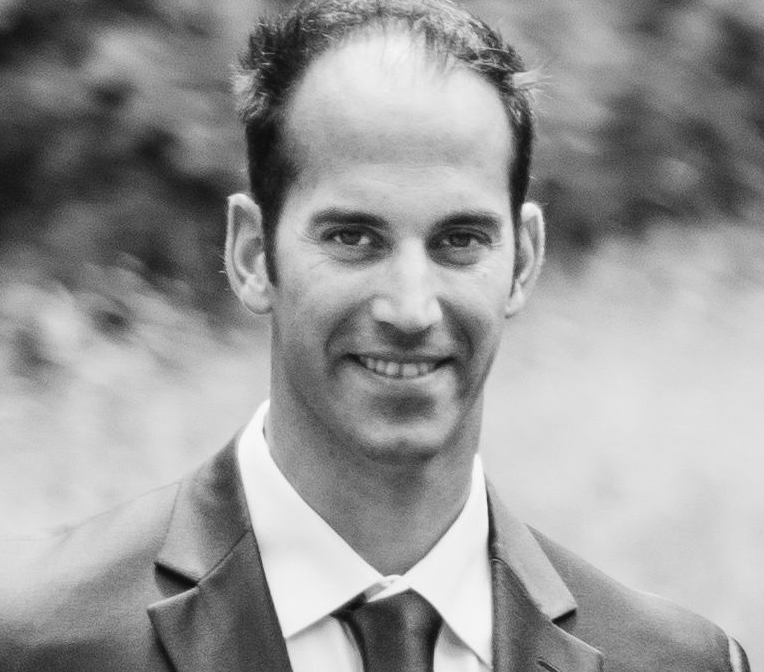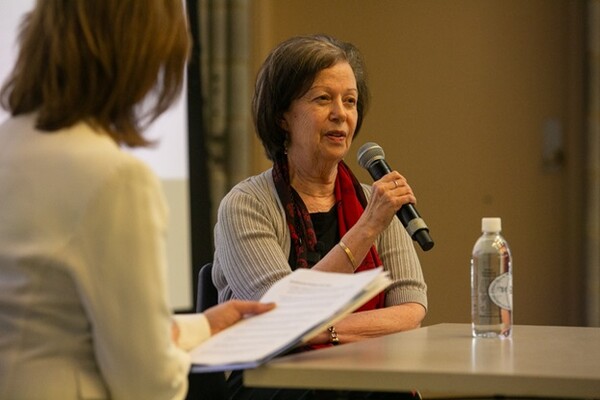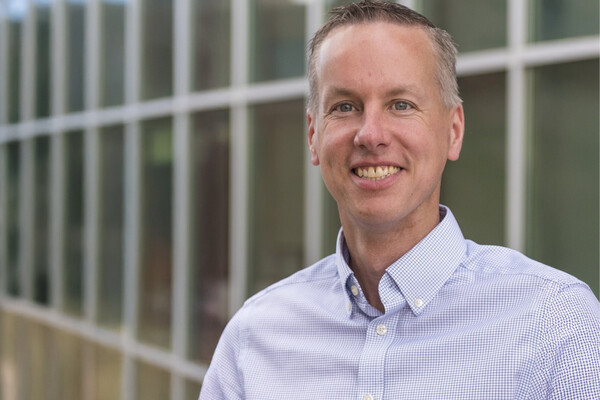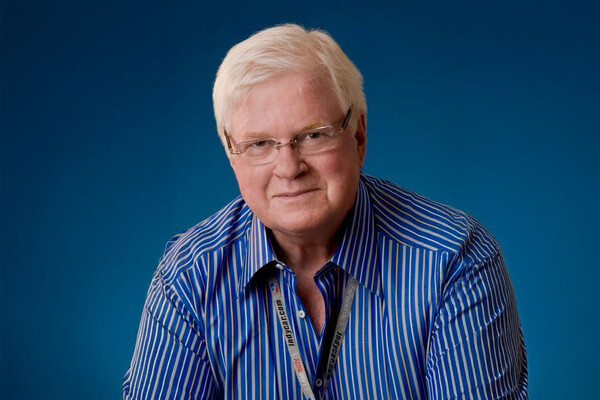Main Second Level Navigation
Breadcrumbs
- Home
- News & Events
- Recent News
- Alumni Profile: Michael Tusche on Bridging Business and Science
Alumni Profile: Michael Tusche on Bridging Business and Science

Scientist, investor and entrepreneur Michael Tusche (PhD Immunology ’10, MBA Rotman ’12) has spent the past 20 years contributing to and leading the development of new therapeutics in the pharmaceutical and biotech industries.
After early days as a scientist in Japan working on asthma drug discovery at a large international pharmaceutical company, Tusche headed to the University of Toronto’s Temerty Faculty of Medicine to pursue his PhD through the Department of Immunology. He trained in the laboratory of U of T professor and internationally renowned scientist Tak Wah Mak, who is widely known for his 1983 discovery of the T-cell receptor and his pioneering work in the genetics of immunology and cancer. Tusche then joined Toronto’s University Health Network (UHN) as a post-doctoral fellow where he led a group focused on autoimmune and inflammatory drug discovery, while completing an MBA at the Rotman School of Management at U of T. After completing MBA studies, he moved to New York City in 2013 to begin a business career.
In 2017, after four years as a Wall Street hedge fund manager and investment banker, Michael returned to his drug discovery roots by co-founding Nirsum Laboratories, which develops therapies for opioid use disorder, where he served as Chief Scientific Officer. While at Nirsum, Tusche was a co-inventor on patents covering the company’s lead assets, one of which is currently being assessed in early stage clinical studies in the U.S. He was then recruited to join Treadwell Therapeutics, which Dr. Mak had co-founded to develop novel therapeutics for cancer. Tusche served as Treadwell’s co-CEO until December 2023.
As U of T’s Department of Immunology celebrates its 40th anniversary, we chatted with Tusche to talk about his scientific experience and how it influenced his later career journey, as well as the value of looking beyond dollars and cents to the personal impact of drug discovery.
How was your experience as a PhD and post-doc with U of T Immunology?
I always look back fondly on my time at U of T, personally and professionally. I still have great friends from those days. What really strikes me about Toronto, as someone who's been working in biomedical sciences my entire career, is the robustness of the U of T life science innovation ecosystem. You're located right on the corner of University and College and there is just so much going on in that small city block. You have all these world class institutions and hospitals, and I was right in the thick of it.
Tell us more about your research work as a PhD student and post-doctoral fellow?
My thesis was in the study of signal transduction in lymphocytes — or how these specialized white blood cells receive and respond to signals or messages from their environment.
During my time at U of T, we studied the nuclear factor kappa-light-chain-enhancer of activated B cells (NF-κB) pathway. NF-κB is a family of transcription factor protein complexes that controls transcription of DNA, cytokine production and cell survival. We were elucidating the signaling intermediates, and a pathway from antigen receptor to the activation of this transcription factor that leads to the activation of T-cells. Professor Mak’s lab had a longstanding track record of success in this area. Understanding how immune cells are activated can shed light on novel treatment approaches for autoimmunity, inflammation and cancer.
How has your background in research contributed to your business success?
I certainly leverage my scientific acumen. My PhD stands out and better defines my expertise — both as a business manager and with my own personal investments.
The cutting edge of cancer therapy is in immuno-oncology, so as an immunologist I’ve had a huge advantage in identifying promising companies. A good example from early in my career is a company called Kite Pharma. They were developing a blood cancer therapy called chimeric antigen receptor (CAR) T-cell therapy, which modifies a patient’s immune cells to become beacons of sorts, pointing the way to tumours so the therapy can eradicate them.
Kite Pharma continued to grow and was purchased for $11.9 billion USD by Gilead Sciences a few years later.
How would you describe the evolution of your career in drug discovery?
When I started out as a hedge fund manager, I focused on money. I would evaluate clinical studies and just think about them in terms of investment potential: “Did they succeed? Did they fail?” But over time I started to think more about the participants in these studies — every data point was a person, with a family and friends and dreams and fears.
Now I’m much more personally connected with what I’m working on. When I stepped away from Wall Street in 2017, I wanted to start a company that would help people. That became Nirsum Labs, which develops therapies for opioid use disorder. I have a family member that suffers from opioid use disorder, so that was meaningful for me, and to this day it’s one of my proudest achievements.
What do you see yourself doing next?
Something the industry has struggled with for years is treating patients that don’t respond to therapies that are working for most other patients. So, the question I’m most interested in answering is: How do you take those drugs and make them work better for everyone?
My father recently passed away from a type of colorectal cancer that doesn’t respond well to existing therapies, so my next role may be in a company that's developing drugs in that area.
What are your words of wisdom for the next generation of immunologists?
Some people believe there aren’t a lot of paths to success with an immunology PhD, but that’s wrong. It can provide infinite ways forward. If you have a goal in mind, there are many ways to get there, many roads to the top of the mountain. Pursuing a PhD in immunology teaches you how to think and persevere, organize and execute. It opens doors for you to do anything — business, law, academia. The world is your oyster.
News


